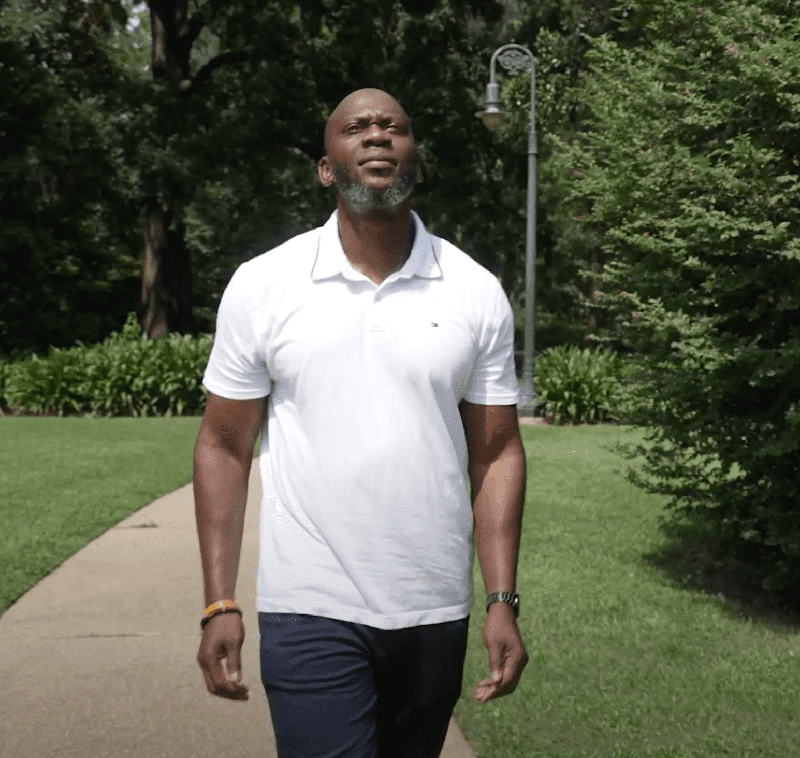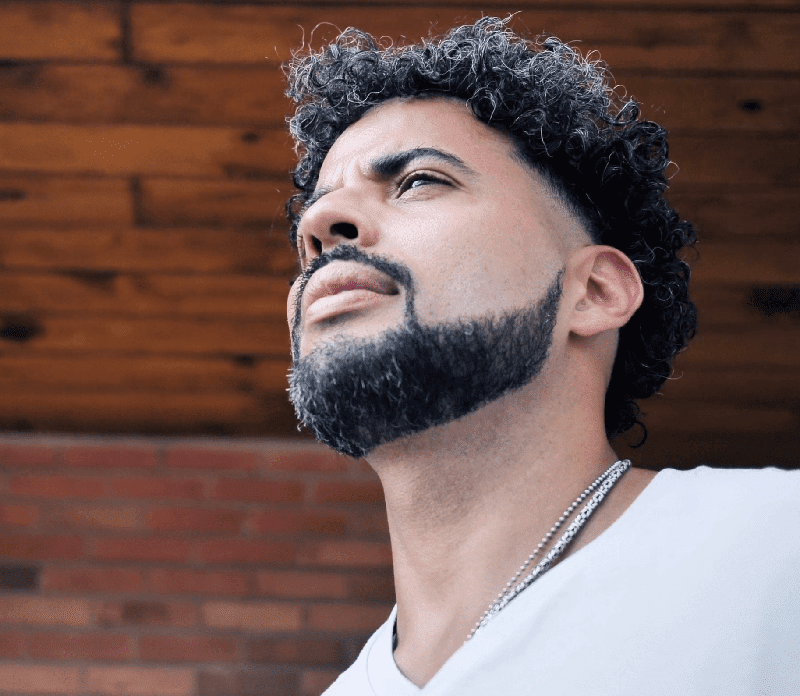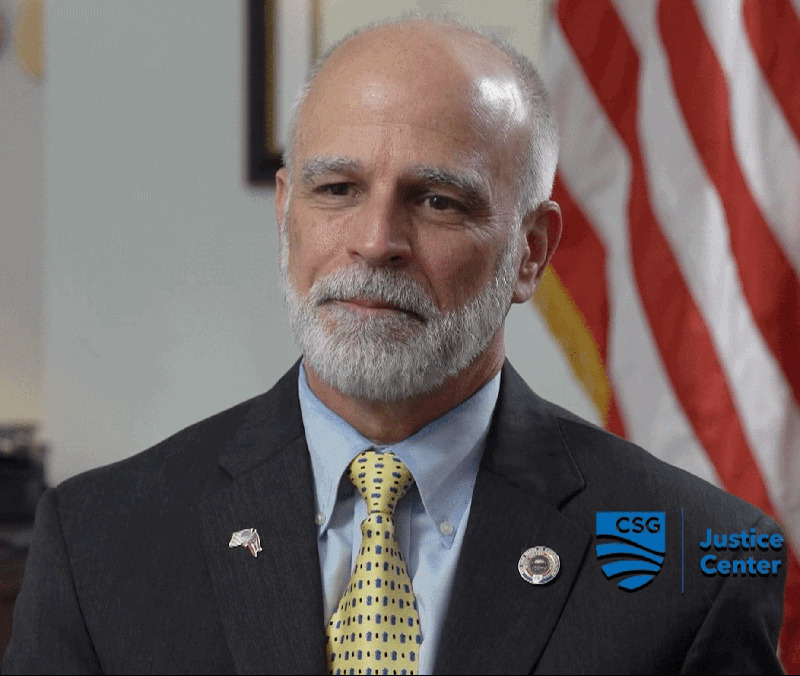Fair Chance Licensing: Living Room Premiere Workshop
The Living Room Premiere is a 45–60 minute workshop that aims to raise awareness and promote discussion in communities about barriers to work for people with criminal records. The workshop materials were produced by the CSG Justice Center and are being made available to civic leaders, including elected officials, equity organizations, and community leaders.
1. Instructions
The workshop is designed to be self-facilitated so that it can be tailored and hosted locally during in-person and/or virtual events. This guide is a reference; those who host a Living Room Premiere should feel free to adapt the materials to fit their needs.
Materials include:
- Three short videos (3–4 minutes each)
- Discussion questions
- Social media toolkit
Here’s how it works:
- Convene a group either virtually or in person (ideally 5 or more people).
- Play the three videos linked in Step 2 beginning with the two videos featuring people with lived experiences, followed by the video of the Ohio state representative.
- After each video, have participants answer the discussion questions on their own.
- Then, have volunteers share their responses with the group.
2. Living Room Premiere Workshop Materials
At the beginning of the workshop, the facilitator should introduce themselves. They should inform participants that the workshop will be 45–60 minutes long and will involve watching three videos and answering a series of questions. Participants will then discuss their responses to the questions as a group.
The majority of people in the United States have been personally impacted by the justice system—either directly or through their families and loved ones. It’s important to check in with the group, especially if someone feels overwhelmed by participating in the conversation or sharing their experience. It can be helpful to slow down the pace of the conversation and encourage all participants to listen to one another’s experiences with empathy.
Part 1: The Issue
To understand the real-life negative effects of licensing barriers, watch two videos featuring Nick Aponte and Lester Young, formerly incarcerated people who share how these barriers have prevented them from launching their careers and how fair chance licensing would allow them to offer their talents and skills to in-demand professions.
 Lester Young – South Carolina
Lester Young – South Carolina
Lester Young was sent to prison when he was 19. When he got out 22 years later, he had a dream of becoming a home inspector in South Carolina. But after taking all the required classes, he discovered he would not be allowed to take the licensing exam due to his felony conviction.
 Nick Aponte – Connecticut
Nick Aponte – Connecticut
Nick Aponte served 23 years in prison in Connecticut, where he became a nurse’s aide in the prison infirmary. Despite his experience and passion for hospice work, his criminal record has prevented him from obtaining a nursing license in the community.
Discussion Questions
After watching the videos, ask participants to write responses to each question below. Then, ask for volunteers to kick off a group discussion, working your way through each question as a group. Emphasize that there are no “right” answers and that the questions are designed to help generate discussion about employment barriers.
- Did you know that one out of every four jobs requires an occupational license?
- What did you learn from Mr. Aponte and Mr. Young that surprised you?
- What is the purpose of occupational licensing, and how does it relate to whether a person has been convicted of a crime in the past?
- How does occupational licensing impact businesses in your community? How does it impact individuals in your community? Find out more about your state here.
Part 2: How States Are Taking Action
Policymakers across the country are now taking steps to advance fair chance licensing policies that aim to expand access to licensure for qualified workers with criminal records. The final video features Rep. Koehler (R-Springfield), a Republican representing Clark County in the Ohio General Assembly. He sponsored Ohio’s Fresh Start Act, which was signed into law in 2021, to reduce barriers to occupational licensing for people with criminal records.
 State Representative Kyle Koehler – Ohio
State Representative Kyle Koehler – Ohio
State Representative Kyle Koehler is a Republican representing Ohio’s 79th House district and championed the state’s Fresh Start Act in 2021. The act, which received broad bipartisan support, represents one of the most robust fair chance licensing laws in the country and was inspired in part by Koehler’s years of experience as an employer at his small family-owned manufacturing business.
Discussion Questions
After watching the final video, ask participants to write responses to each question below. Then, ask for volunteers to share their responses with the group.
- Did you catch the research finding Rep. Koehler shared about how people who have been home for at least five years pose the same risk as someone who has never had contact with the justice system?
- How does that compare to your understanding of a person’s risk to public safety?
- Before watching these videos, what thoughts did you have about employment for people with records?
- Did watching these videos challenge any stereotypes you might have had? If so, how?
You can follow the CSG Justice Center on Twitter, LinkedIn, and Facebook for more news and updates.
3. Living Room Premiere Social Media Toolkit
1. Promote your Living Room Premiere event.
Suggested Tweet:
The Living Room Premiere is a workshop that promotes conversation about barriers to employment for people with criminal records. Learn more about #fairchance licensing and join the discussion. Share your stories and insights with @CSGJC https://bit.ly/3DqODc9 #finallyfree
2. Share your insights and spread the word.
After your discussion, join the CSG Justice Center on social media to share your stories, thoughts, and key insights using the hashtags #Finallyfree #Timedone #UntappedTalent #wkdev #FairChance.
Suggested Tweet:
The Living Room Premiere workshop taught us how barriers to work prevent qualified workers from pursuing critical occupations just because they have a criminal record. Learn more about @CSGJC’s efforts to address these barriers and how you can support: https://bit.ly/3DqODc9
Suggested Tweet:
Thank you to our #FairChance partners! Be sure to follow and stay informed about Fair Chance Licensing. @Arnold_Ventures @jfftweets @WK_Kellogg_Fdn @PublicWelfare @SkillsCoalition @YouthBuildUSA @ecmcgroup @AscendiumEd @bluemeridianp @STRIVEINTL @ceoworks @midwestworkers @cfsem
Groups to tag and follow:
| Name | Handle |
|---|---|
| The Council of State Governments Justice Center | @CSGJC |
| Jobs for the Future | @jfftweets |
| Community Foundation for Southeast Michigan | @cfsem |
| Midwest Urban Strategies | @midwestworkers |
| Center for Employment Opportunities | @ceoworks |
| National Skills Coalition | @SkillsCoalition |
| STRIVE | @STRIVEINTL |
| YouthBuild USA | @YouthBuildUSA |
| Blue Meridian Partners | @bluemeridianp |
| Arnold Ventures | @Arnold_Ventures |
| Public Welfare Foundation | @PublicWelfare |
| W.K. Kellogg Foundation | @WK_Kellogg_Fdn |
| Ascendium Education Group | @AscendiumEd |
| ECMC Group | @ecmcgroup |










